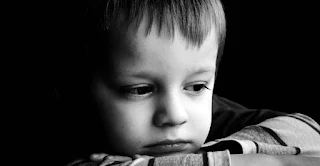Anxiety and depressive disorders are mental health problems that affect not only adults but also children. Anxiety can be temporary and not offensive, but it can also have serious consequences. An American study has established the relationship between declining free play time and anxiety and depression in children. Explications!
The prevalence of depressive disorders is estimated between 2.1 to 3.4% in children and 14% in adolescents. Figures that have increased since the previous century and this around the world. The most recent evidence of the marked generational increase in depression, anxiety, and other mental disorders in young people comes from a recent study led by Jean Twenge of San Diego State University.
What are the causes of the increase in depression among the youngest?
Increased psychopathology does not seem to be related to realistic dangers and uncertainties in the larger world. The changes are not related to economic cycles, wars or any of the other types of global events that people often talk about as affecting the mental states of children. The changes seem to be related to the way young people see and perceive the world.
Perception of the mastery of destiny
It is clear that anxiety and depression have a strong correlation with people's sense of control or lack of control over their own lives. People who think they are responsible for their own destiny are less likely to become anxious or depressed than those who think they are victims of circumstances beyond their control. Indeed, the data indicate that young people's conviction of controlling their own destiny has greatly diminished in recent decades. Thus, when anxiety and helplessness become too great, young people become depressed.
Orientation towards extrinsic objectives instead of intrinsic objectives
Twenge's own theory is that generational increases in anxiety and depression are related to the shift from "intrinsic" goals to "extrinsic" ones. The intrinsic goals are those that relate to one's own development as a person, such as becoming proficient in the efforts of one's choice and developing a meaningful life philosophy. Extrinsic objectives, on the other hand, are those related to the material rewards and judgments of others. They include goals of high income, status and beauty.
Twenge cites an annual survey of college students that reveals that most students today consider being affluent more important than "developing a meaningful life philosophy."
Twenge suggests that the shift from intrinsic goals to extrinsic goals represents a general shift towards a culture of materialism, transmitted by television and other media. From birth, young people are exposed to advertisements and other messages implying that happiness depends on beauty, popularity and material goods. According to Peter Gray, author of Free to Learn, generational increases in extrinsic goals, anxiety, and depression are largely caused by decreased free play opportunities increase in the time and importance of schooling.
How is the decline in free play time impacting children's mental health?
According to Dr. Gray, the freedom of children to play and explore as they please has declined dramatically in recent decades. Free play and exploration are, historically, the means by which children learn to solve their own problems, to control their own lives, to develop their own interests and to become competent in the pursuit of their goals.
By depriving children of the opportunity to play alone, far from the direct supervision and control of adults, we are depriving them of the opportunity to learn to take charge of their own lives. We may think that we protect them, but in fact, we diminish their joy and their sense of self-control. And so their sanity is affected!


